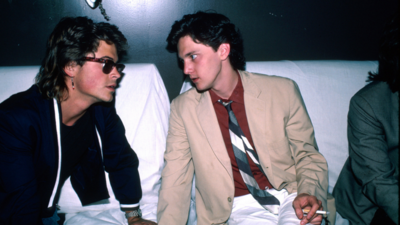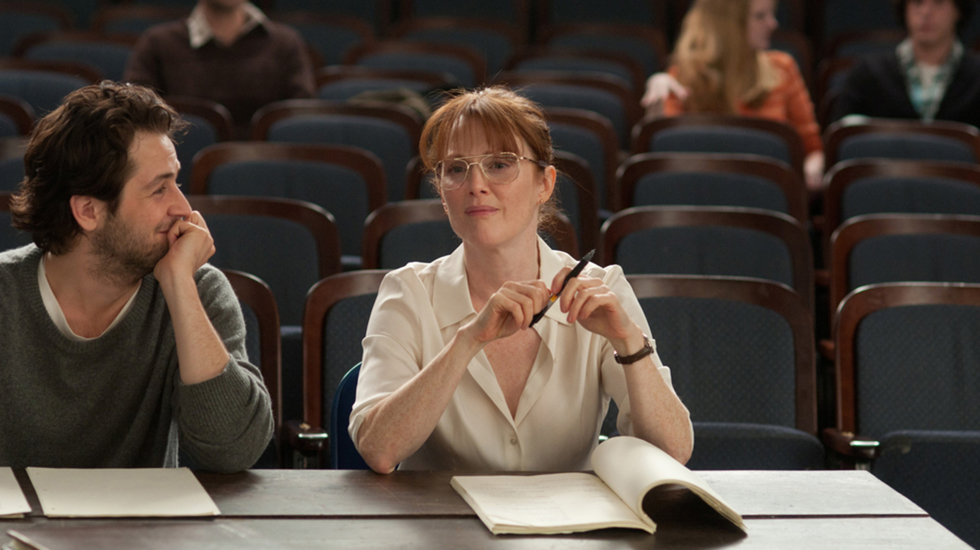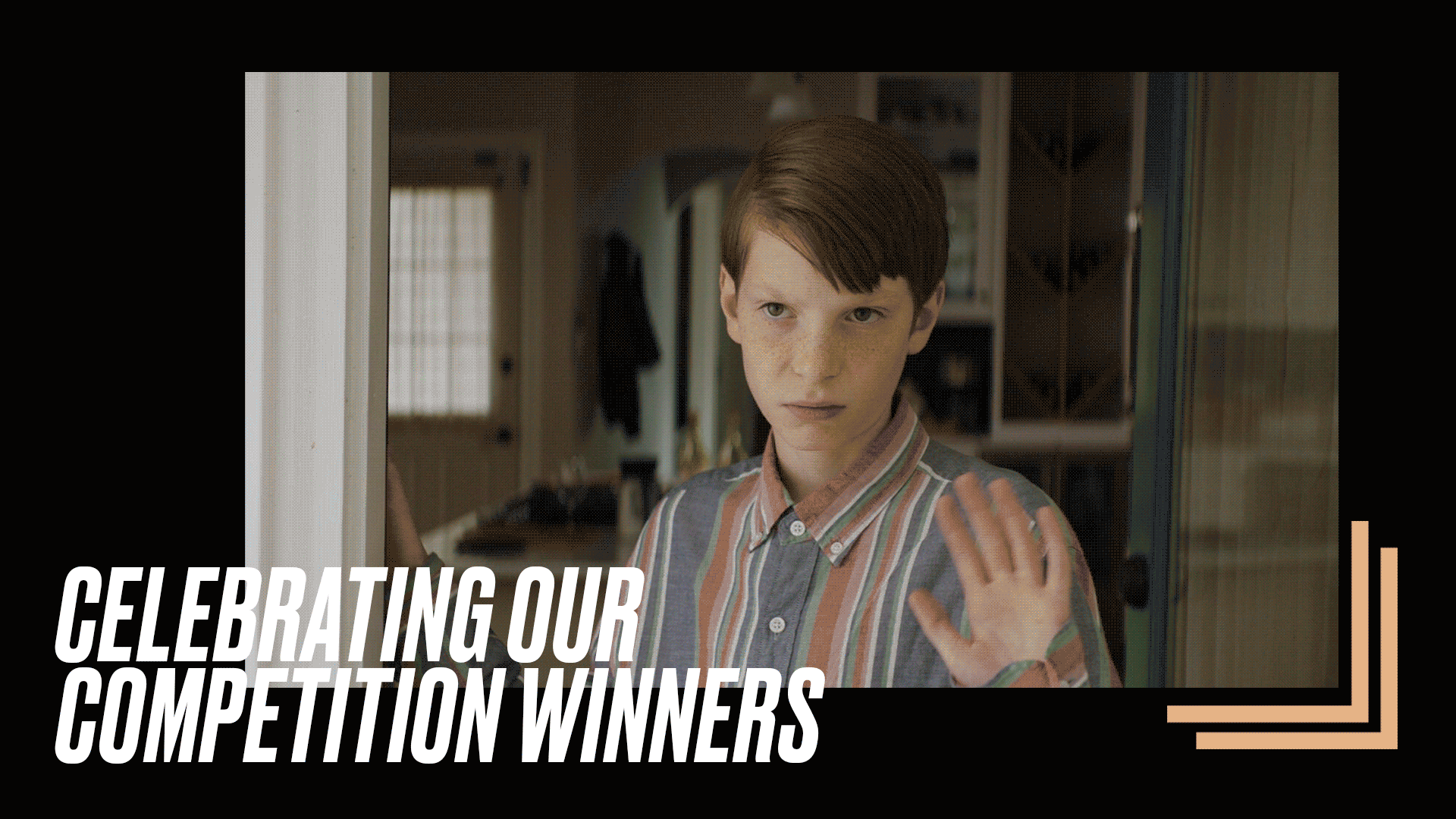
BY KAREN KEMMERLE |
‘The English Teacher’ Director Craig Zisk On Julianne Moore and Suffering in the Name of Passion
Established television director Craig Zisk talks about directing his first feature, ‘The English Teacher,’ and his love of classic literature. The film opens today in NYC at the Village East Cinema.

In this interview from TFF 2013, acclaimed TV producer and director Craig Zisk (“Weeds,” “United States of Tara”) discusses his stellar cast, the differences between directing for film and television, and why The English Teacher reminds him of a good novel.
Tribeca: Tell us a little about The English Teacher. What inspired you to tell this story?
Craig Zisk: I waited a long time to direct my first feature because I was looking for a compelling, human story with a sense of humor. The English Teacher embodied all of those things. I wanted characters that were flawed but redeemable, much like we all are. The script reminded me of the great Lubitsch and Cukor comedies of the 1930s and 40s.
Tribeca: What drew you to Dan and Stacy Chariton’s script? Was it that they definitely captured the theme of self-discovery and reinvention that recurs in your own body of work? Like Linda Sinclair, are you a lover of classic literary romances?
CZ: The Chariton’s script was a page-turner from word one. Their unique voice, distinct character development, and comedic style were similar in tone to some of my most recent projects, but they told their story in such an inventive way.
Linda Sinclair shares the same rich complexity and strong will with other characters I’ve helped develop like Nancy Botwin in "Weeds," Jackie Peyton in "Nurse Jackie" and Tara Gregson in "United States of Tara." I’ve always been drawn to the themes of self-discovery and reinvention because they represent a universal journey that we all experience.
I was an English major at USC and enjoyed studying classic literature. The English Teacher allowed me to meld my love of these books with great romantic films like A Room with a View and Pride and Prejudice. I set out to make a contemporary period piece to pay homage to these books and films.
It takes you back to the way movies used to be.
Tribeca: I don’t think I’m exaggerating when I say that you are one of the most hardworking people in television. With your vast experiences with executive producing and directing shows like "Weeds" and "United States of Tara" along with directing episodes of shows like "Parks & Recreation," "The Big C," and "Scrubs" (just to name a few), what inspired you to start directing films? Can you talk a little bit about the differences between directing for film and directing for television?
CZ: One of the many great aspects of directing a feature film, even a small-scale independent, is that you have the time to give it visual scope. This is much more difficult in television for both budgetary and scheduling reasons. For the film, I designed masters that tell the whole story of the scenes and then shot as little coverage as possible. Television works on the opposite principal. You make sure you have the coverage and then figure out a master to tell you where you are.
My DP, Vanja Cernjul, and I felt that it was important to shoot the film in the anamorphic format. We wanted to give the film a bigger presence because we were telling a somewhat interior, personal story. I really like letting the action play out in front of the lens instead of relying on a lot of cutting.
Another difference between films and television is prep time. Vanja and I would take the train from the city out to our production offices in Dobbs Ferry, which gave us quiet time to literally map out each and every shot in the movie. Also, this extended prep time allowed me to work much more closely with my Production Designer, Michael Shaw, and my Costume Designer, Emma Potter. As a group, we designed the look, color palette and style of the film. You just don’t get that chance in television with 4-7 days of prep.
Tribeca: Julianne Moore is absolutely perfect as the repressed but artistic English teacher, Linda Sinclair. I don’t think I’ve ever seen her in role like this before. How did she come to the project? What were her initial reactions to the script?
CZ: As we all did, Julianne read the script and fell in love with it. I can’t image anyone else in this role. Julianne has a unique talent that allows her to fully commit to a character and always succeed. She is unbelievably gifted and exceeded all of my already high expectations.
Tribeca: You have an amazingly talented and varied ensemble cast, full of rising young Hollywood talent (Lily Collins, Michael Angarano, Charlie Saxton) and Broadway/Hollywood veterans (Nathan Lane, Greg Kinnear, Jessica Hecht, Norbert Leo Butz). Can you tell us about the casting process? Were you able to have rehearsal time?
CZ: I am blessed to have this incredibly talented group of actors in my movie. Having Julianne attached was a gigantic draw to everybody we approached. As I was putting together lists of actors that I thought were right for each of these great parts, never in a million years did I think my first choices would all say “yes.” When you’re looking for a Nathan Lane type and you actually get Nathan Lane, what could be better? Shooting the movie in New York was fantastic because of the great talent pool. The stage experience of so many of those in the cast really fit our style well.
We actually chose not to do any rehearsing other than a table read. It’s something I’ve done quite often in television and it served us well to keep the comedy fresh on the set.
The script reminded me of the great Lubitsch and Cukor comedies of the 1930s and 40s.
Tribeca: A Tale of Two Cities, Death of a Salesman, and Pride & Prejudice are just a few of the classics woven into the script for The English Teacher. Did you have your cast read any of the plays or novels discussed in the film to inspire them or help them develop their characters?
CZ: Michael Angarano and I talked about his character, Jason, and what kind of literature he might be reading. It’s subtle, but Jason always has a book in the pocket of his leather jacket. I recommended Marquez’ Love in the Time of Cholera (one of my favorites) because it shares a similar theme to the film: suffering in the name of passion.
Tribeca: Linda gives her students an interesting assignment, asking them to write alternative endings to A Tale of Two Cities. If you had to re-write an ending to a famous literary work, what would it be and why?
CZ: What a question! Much like Linda Sinclair, I’m a reader not a writer. I can’t imagine improving upon Austen, Dickens or Shakespeare.
Tribeca: What are you most looking forward to at Tribeca?
CZ: Tribeca has always been a great platform for truly independent filmmaking. There is an incredible slate of films screening at Tribeca this year and it is an honor to be amongst them. I always enjoy speaking to other filmmakers and hearing about their journeys. Selfishly, I’m looking forward to screening The English Teacher because this will be the first screening I’ve attended with an audience not made up primarily of family and friends!
Tribeca: What makes The English Teacher a Tribeca must-see?
CZ: The English Teacher reminds me of a good novel you just can’t put down. It doesn’t rely on gimmicks and tricks but instead on great storytelling and fantastic performances. It takes you back to the way movies used to be.
The English Teacher opens today in New York City at Village East Cinema.

